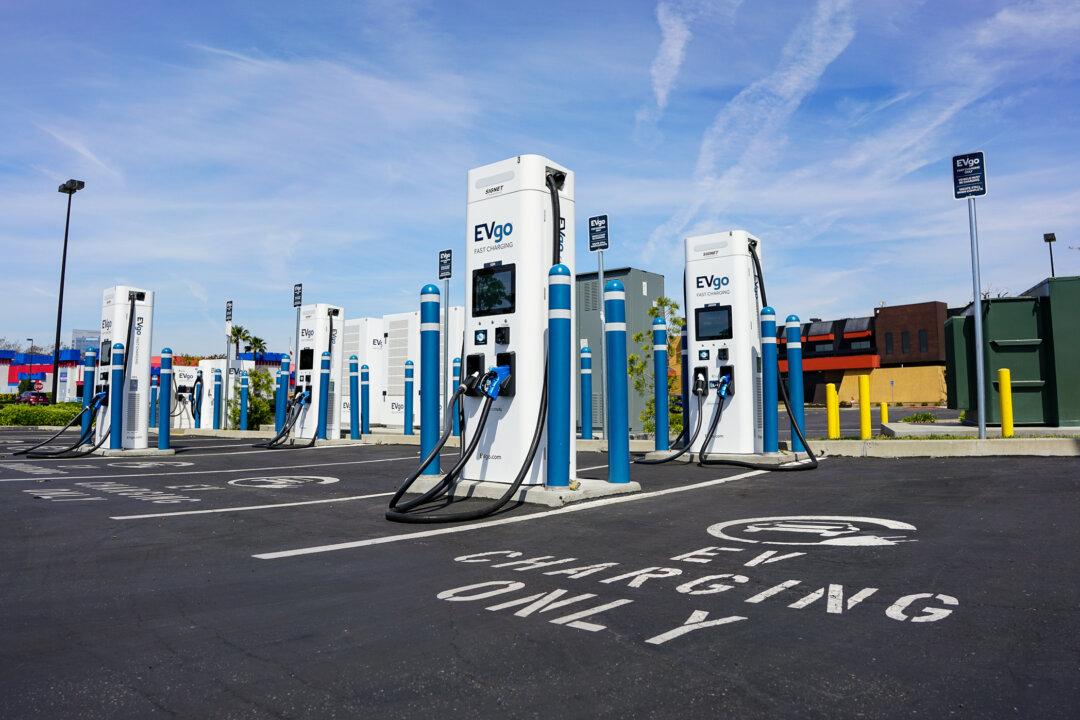The Biden administration is awarding $623 million in grants for the construction of an electric vehicle (EV) charging network across the United States, officials stated on Jan. 11.
The grants will fund 47 EV charging and alternative fueling infrastructure projects across 22 states and Puerto Rico, including the construction of 7,500 EV charging ports.





